Green tea has been enjoyed for many centuries and is one of the world’s most popular beverages.
All types of tea come from the Camellia sinensis plant. Green tea gets its name from the emerald green colour created when brewing unprocessed, unfermented tea leaves.
With origins going back as far as 5,000 years, green tea is commonly drunk and widely grown in the Far East where the health properties are well regarded.
What is green tea?
Depending on the processing method, tea leaves can produce green, black, white, or oolong tea.
Green tea is made from fresh tea leaves that undergo drying and sunlight exposure to prevent oxidation and fermentation, which leads to green tea’s distinct, sometimes almost bitter flavour.
Certain types of green tea may undergo different processing methods. For example, matcha green tea is produced with pre-harvest tea leaves that sit under 90% shade, resulting in a richer flavour and higher antioxidant content.
Green teas are well known for being rich in antioxidants. Most of the antioxidants in green tea come from compounds known as flavanols, particularly a type known as catechins.
The most abundant and powerful compound in green tea is epigallocatechin gallate (EGCG), which has been linked to a reduced risk of heart disease and certain types of cancer.
Due to its rich antioxidant content, green tea and its extracts are widely used for other purposes, such as preventing hair loss and improving hair health.
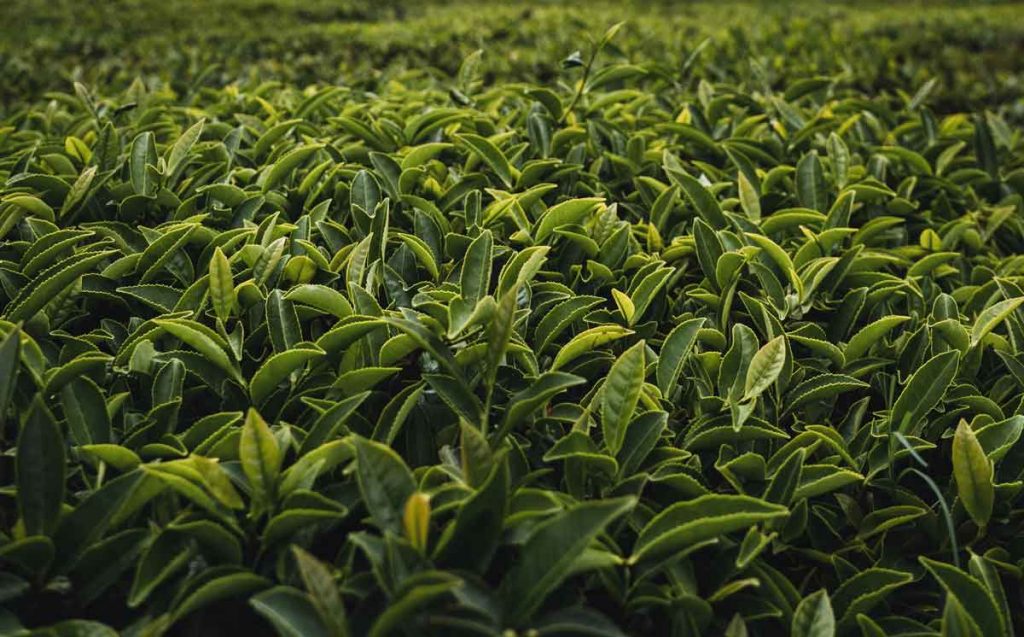
Health Benefits of Green Tea
There are many health claims surrounding green tea from a reduced risk of cancer to weight loss.
Some of the health claims are based on ancient Eastern traditions, where green tea has been used to treat symptoms of disease for many years. Because of the proposed benefits, many health products now include traces of green tea.
If you are hoping to use green tea for medicinal purposes, make sure to consult your doctor first.
Green tea does have more health benefits than black tea which can be attributed to its lack of processing (much like comparing white rice to brown rice) and the fact that green tea is higher in protective polyphenols.
The major polyphenols in green tea are flavonoids, the most active of which are catechins and epigallocatechin gallate (EGCG) which function as powerful antioxidants.
Antioxidants are well known to protect the body against disease and are an important part of a healthy diet. Antioxidants can be found in a range of fruits, vegetables and other unprocessed foods. As part of a balanced diet, green tea can be a good source of antioxidants.
EGCG is also popping up more commonly in modern skin care products and is believed to increase the skin’s natural production of Hyaluronic Acid, while improving moisture retention and reducing the formation of wrinkles.
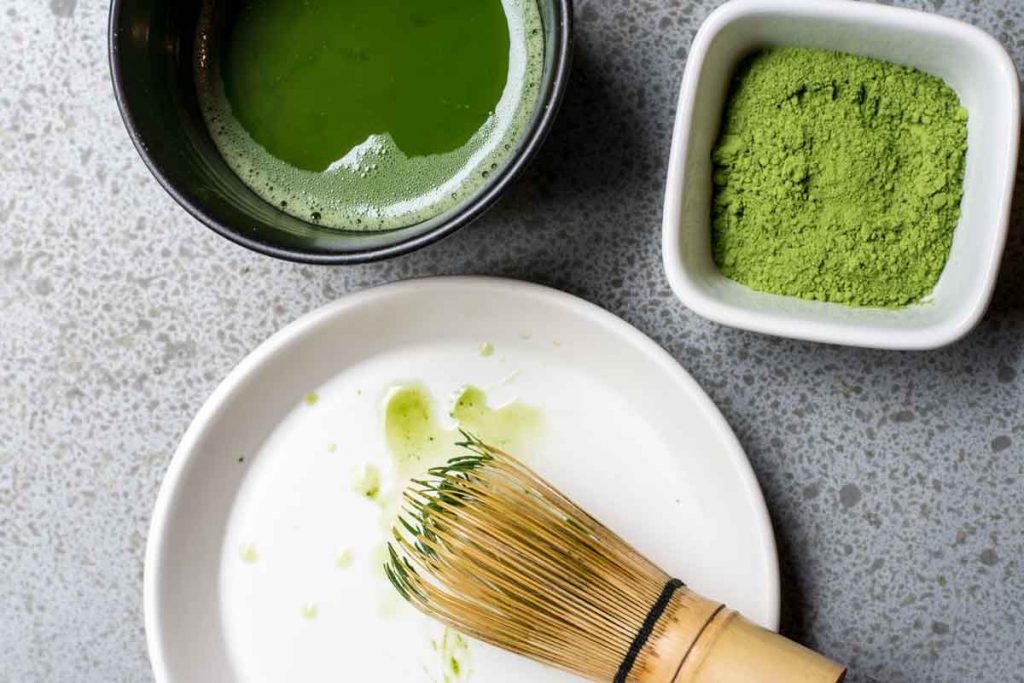
The Benefits of Green Tea for Hair
Touted as an all round cure-all drink, many companies have started including green tea as an ingredient in many hair and skin care products. Here are some potential hair benefits of green tea.
May prevent hair loss
Hair loss affects many people and has various causes, such as stress, diet, autoimmune diseases, and hormonal changes.
Two hormones (testosterone and dihydrotestosterone) can inhibit the hair growth phase and increase hair loss. Some research has shown that EGCG contained in green tea can inhibit the effects of these hormones on hair and slow hair loss.
In one study, mice that received a topical treatment of EGCG-rich green tea had significantly less hair loss than those that did not receive treatment.
It appears that EGCG decreases testosterone-induced hair loss by prolonging the growth phase of the hair turn-over cycle and slowing the shedding phase.
Supports hair growth
Green tea may support healthy hair growth and regrowth.
In one small study, researchers added topical green tea-derived EGCG extract to the scalps of three participants with alopecia. After 4 days, the participants experienced significant increases in hair growth activity.
EGCG appears to increase hair growth by stimulating hair follicles and preventing damage to skin and hair cells.
Improved nutrient delivery
Hair is part of a much larger system called the integumentary system, which includes nails, skin, hair, and accessory structures. Hair grows directly from the skin, from which it receives blood flow and nutrition during its growth stage.
In a small study in 15 participants, researchers found that consuming supplements containing green tea extract for 12 weeks increased skin blood flow and oxygen delivery by 29%, compared with the control group.
In another group in the same study, 30 participants drank 1 litre of green tea for 12 weeks. Compared with the control group, the green tea group showed significant improvements in skin hydration.
Hair growth is largely connected to oxygen and nutrient delivery to the skin, and poor blood circulation has been know to lead to hair loss. Therefore, drinking green tea may increase the supply of these nutrients to your scalp and improve hair growth.
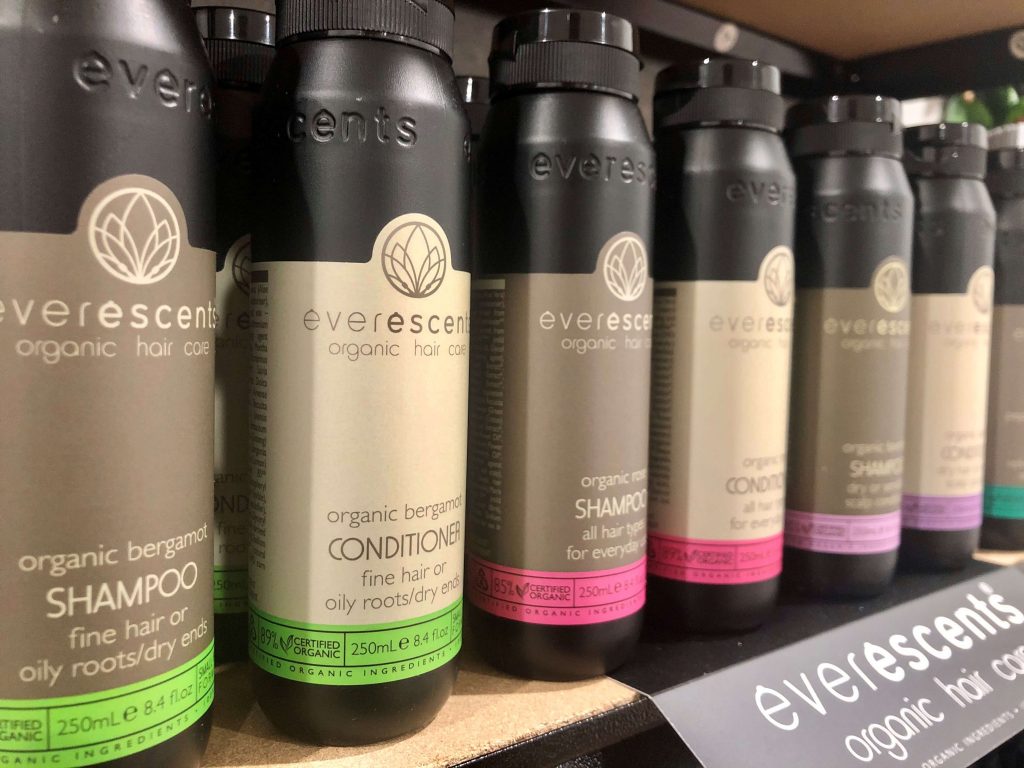
GREEN TEA IN EVERESCENTS ORGANIC HAIR CARE PRODUCTS
Camellia Sinensis (green tea) extract is a key ingredient in EverEscents Organic Hair Care’s signature blend of Organic Essential Oils and Extracts and can be found across the entire range of EverEscents Organic Shampoos and Conditioners.
Green tea extract is beneficial for all hair types and regular use of green tea in hair care has been shown to promote healthy hair growth, soothe inflammation and scalp conditions, and leave hair smooth and shiny. These are just some of the reasons why we love green tea so much and are proud to include it in the EverEscents range of organic shampoo and conditioner.
Sources:
https://www.bbcgoodfood.com/howto/guide/health-benefits-green-tea

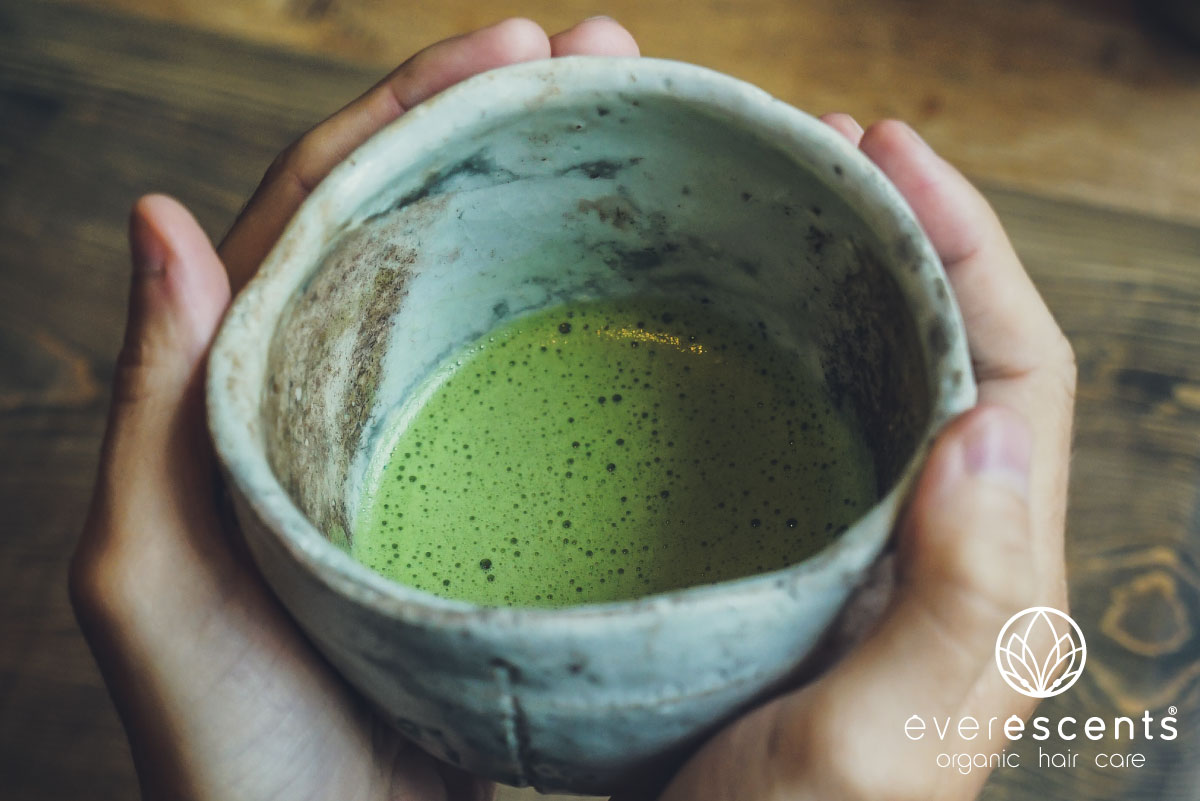
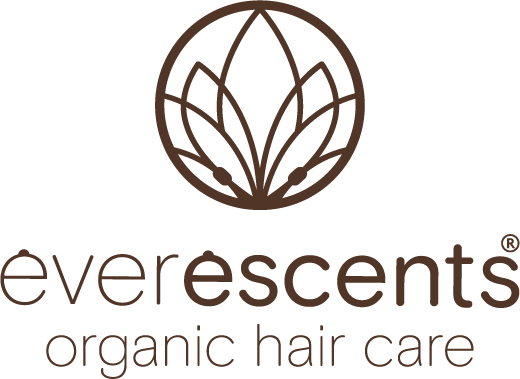
You must be logged in to post a comment.